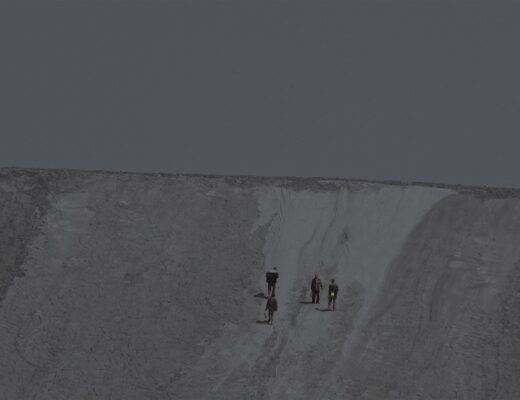In the 2010s, something strange happened to Robert Zemeckis: he almost became respectable again. After his trilogy of mo-cap extravaganzas, he suddenly returned to, if not prominence, then a certain level of respect for his next two films. Flight, in some ways, made sense: Denzel Washington being as much of a powerhouse as ever, an examination of addiction and guilt, a spectacular centerpiece. But it makes an odd pair with its successor, 2015’s The Walk; though both films involve extensive special effects and were New York Film Festival gala world premieres — spanning both Richard Peña’s and Kent Jones’ festival director tenures — the similarities, at least on a surface level, end there.
I should note here that I’ve never seen either James Marsh’s documentary Man on Wire (2008) or The Walk in its proper 3D form. Indeed, both of my viewings of the latter were significantly compromised: the first was literally on an airplane — approximately 38,000 feet higher than Philippe Petit was — and the second was a home viewing. But the universally adored part of this film, the high-wire walk itself, which takes up a full twenty minutes, still manages to captivate me. The sense that I got, both at the time and in the intervening years as Zemeckis’ reputation — first unfairly and now perhaps fairly — sunk once again, was that the preceding hour and twenty minutes were simply a means to an end, a necessary inconvenience in order to experience the simple thrill of being perched above the void.
But to view The Walk as merely twenty minutes of great filmmaking doesn’t capture what makes it so odd and compelling. This is evident from the very first shot: a tight widescreen close-up of Joseph Gordon-Levitt as Petit, with piercing blue eyes and a hyperactive French accent, monologuing at the viewer while the camera pulls back to reveal him perched atop the Statue of Liberty torch, with an impossibly sparkling New York City in the background. Zemeckis will return to this narration time and again, both with and without image, only reinforcing what was already evident: that Petit will survive his death-defying feat, that there will be numerous complications and intense planning to achieve this. But it also places the film into an almost mystical realm, most obviously invoked by the arrival of the mysterious visitor on the South Tower roof (which in turn reminded me of The Falling Man) and the clouds that swell as Petit makes his first step.
This tone, which reaches its apex during the successive walk Petit makes, including the sublime crane down from him lying down on the wire to the adoring watchers below, makes for a great counterweight to the first hour, and especially the extended thirty-minute sequence of preparations on the day of August 6. The heist movie comparisons have already been made clear, and the fairly tight construction makes the film relatively zip by, but the two approaches are allowed to meld together: the door that the construction worker leaves open is both a necessary step to progress the plan and an almost divine intervention, as are the serendipitous introductions of Barry Greenhouse and Jean-Pierre. Chance and skill have an equal place in The Walk, where little gambits and risks add up across both Petit and his collaborators.
The Walk is certainly romantic, swooning and thrilling to the passion of Petit even as his more unhinged impulses get their day in the sun. The viewer, of course, connects to the applauding audiences because the experience is so exhilarating, the sight of seeing this man suspended so high in the air. But the final gesture of the film, a brief turn of expression after Petit mentions that his pass to the World Trade Center observation deck was meant to be forever, rings deeply. There’s an air of melancholy that pervades the film, where the simulacrum of both the Twin Towers and Manhattan are necessary because these worlds are impossible to access now. But Zemeckis’ final touch, fading out on his constructed New York skyline to not erase the towers but to encase them in gold, unites all of his most pleasing impulses. The Walk is not necessarily a great film — too airy, too manic, even too silly at times — but it offers great Zemeckis riches throughout.
Part of Robert Zemeckis: Movie Magician







